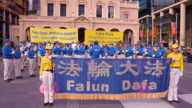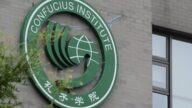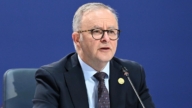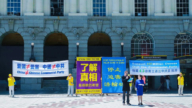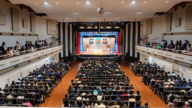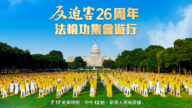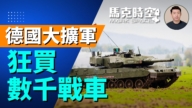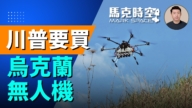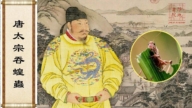【新唐人2012年6月9日讯】为了防范中共的网路间谍,澳洲国防部长史密斯在访华前,特意将自己的手机和电脑留在香港。澳防长在访问其他国家时,很少采取这种做法,这种罕见的反间谍防范措施,被澳洲媒体解读为:在这趟“友善访问”的表面下,澳洲对中国有挥之不去的不信任感。
史密斯6月6号出席澳中国防部长首次举行的双边对话,与中共国防部长梁光烈会晤。双方就中澳双边和防务关系、地区安全以及其他问题进行了会谈。
《法新社》引述澳洲《费尔法斯》报纸的报导说,由于澳防长在此之前的访问中,手机和电脑曾被“入侵”,因此在这次访华前,史密斯及访华团成员都被告知,在进入中国大陆前,要将手机和电脑留在香港。
史密斯6号在北京向记者表示,“我们非常重视部长级通讯的机密性”。
报导还引述一名外交人士的话说,“我们都知道中国,这是标准建议。我们知道部长会成为目标。他们有这样的能力和企图。”
新西兰《新报》主编陈维健认为,这种考虑措施“非常有必要”。
陈维健:“现在中共在网路上可以说是无所不用其极的。作为澳大利亚国防部长,他的手机、电脑当然有很多很多的信息。在中国这样一个环境当中,当然是有必要作出这样的措施。”
据了解,去年3月,史密斯的电脑与澳总理和外长的电脑,都被黑客入侵。“有关黑客”被认为是来自中国,但北京完全予以否认。
陈维健:“对于入侵个人手机已经是一个公开的秘密了。因为这种新闻完全是非常无耻的,这些事情它(中共)也不在乎。”
不过,澳洲国防部长办公室拒绝评论有关报导。
原“北京大学”法律系讲师,宪政学者王天成则认为,澳防长的这种做法公然给了中共政府一个耳光。
宪政学者王天成:“可以这么说吧,是一种姿态,是一种抗议吧,是一种不满的表示吧。他进入中国境内他也应该会用通讯工具啊,也要打电话呀。实际上是释放一个信息,就 是中国是网际网路安全的威胁的一个重要来源。”
不过,澳洲议会外交事务秘书马勒斯说,中国对澳大利亚来说是一个非常重要的伙伴,澳中关系“正逐渐增强”。
西方政府显然深知中共政府的不光彩行为,为什么还要加强和中共的合作呢?陈维健指出,西方政客把利益视为最大的需求。特别在近几年,西方社会经济不太好,在经济上就会求助于中共。
陈维健:“西方跟中共打交道,很容易通过一些政治表态就可以得到大量的利益的情况下,他们是非常乐意跟中共打交道和获取西方所得的利益。比如说,在人权问题上,你姿态放低一点,就可以得到大量的订单。”
4月初,首批驻扎澳大利亚的200名美国海军陆战队员,抵达澳洲北部驻地——达尔文。史密斯说,在澳大利亚部署美国海军陆战队,是回应中国和印度在战略和政治崛起的一种姿态。
陈维健:“西方社会对中共是两面性的。它并不是说跟中国的关系搞得火热就是认同了中国的这一套政治,包括它的对外政策。不是的,而是利益的需求。近几年西方社会在跟中国关系越来越密切的情况下,也做好了另一手准备,对中共的防范也在不断加强。”
今年稍早,澳洲政府因为担心遭到中共网路攻击,禁止由中共军方退役工程师创立的电信设备商“华为”,投标澳洲宽频网路建设。
采访/秦雪 编辑/王子琦 后制/孙宁
Disbelief in “Friendly Visit” to China:
Australian Defence Minister Left Phone in Hong Kong
To prevent Chinese Communist Party’s (CCP) internet spies,
Australia’s Defense Minister, Stephen Smith,
left his cell phone and computer in Hong Kong.
Smith rarely takes similar measures
when visiting other countries.
This unusual anti-spy preventive measure is considered
by Australian media as disbelief in China during this “friendly visit.”
On June 6, Australia’s Defence Minister, Stephen Smith,
attended the bilateral conference between China and Australia.
He met his Chinese counterpart Liang Guanglie.
They talked about bilateral relations,
defense, regional security and other issues.
Agence France-Presse cited Fairfax
newspaper from (Australia).
Smith and his entourage were advised to leave their mobile
devices in Hong Kong before continuing to mainland China.
This came after Smith’s computers and mobiles
were “compromised" while on a previous trip.
“We place great score on the confidentiality of ministerial
communications," Mr Smith told reporters in Beijing.
“We all know China, that’s standard advice. We know
ministers are targets," a diplomatic source told Fairfax.
They have the capability and intent.”
Chen Weijian, Editor in Chief of New Times Weekly
in New Zealand commented.
Chen believes that these measures are “highly necessary.”
Chen Weijian: “Now the CCP uses
almost all means on the network.
As Australia’s Defense Minister, his cell and
computer must carry important information.
Therefore, such measures in China are necessary.”
It was reported that Mr Smith’s computer and that
of other Australian officials was hacked in March.
The attacks were alleged to have originated from China,
but China has dismissed the allegations.
Chen Weijian: “Attacking personal mobile phones
is already a secret known to all.
It happens a lot and it’s shameless,
but [CCP] doesn’t care about it.”
However, Smith’s office refused
to comment on related reports.
Wang Tiancheng, former law lecturer in Peking University,
and constitutionalism scholar commented.
Wang believes that Smith’s behavior gave the CCP a slap.
Wang Tiancheng: “It can be understood
as an attitude, a protest.
He must need to communicate after entering China.
He needs to make phone calls.
So actually he is releasing the message that China
is a major threat to network security.”
Richard Marles, Smith’s parliamentary secretary, however
said that Australia’s relationship with China was “growing stronger by the day.
China is a very important partner with Australia."
Obviously, these western governments know
very well about the CCP’s dishonest behavior.
Why do they want to strengthen cooperation with China?
Chen Weijian said that western politicians
consider money as the their primary goal.
Especially in these years, the western economy
is not good and they want to rely on the CCP.
Chen Weijian: “When dealing with the CCP, they easily get
huge amounts of money through some political declaration.
They would love to deal with the CCP
and get the money they want.
For example, on human rights issues, if you keep
it in a low profile, large orders will come along.”
At the beginning of April, some 200 US Marines arrived
in Darwin, as the first US troop in Australia.
Smith said that the US move was aimed at dealing
with the challenge of the rise of China and India.
Chen Weijian: “The western world has dual
character when facing the CCP.
Their drastically growing relationship with China doesn’t
mean they agree on China’s political system, nor its diplomacy.
Instead, it’s for money.
In recent years, as the western world have closer relations
with China, they have a second string to their bow.
It tightens their prevention against the CCP.”
Early this year, out of fear of the CCP’s network attacks,
the Australian government blocked Huawei from major telecom projects in Australia.
Huawei is a corporation established
by China’s retired military engineers.


